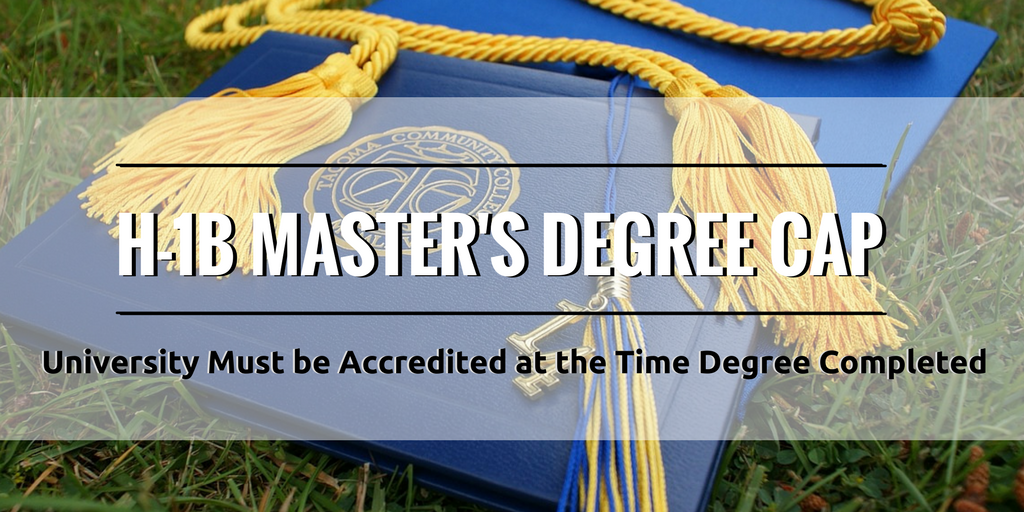USCIS Clarifies H-1B Master’s Cap Degree Must be Obtained While University is Accredited
The U.S. Citizenship and Immigration Service (USCIS) has issued a memorandum adopting the AAO decision in Matter of A-T-, Inc. and establishing policy guidance which will apply to and bind all USCIS adjudicators. USCIS clarifies that in order to be able to qualify for an H-1B cap exemption based on a U.S. master’s or higher degree, the institution which has awarded such degree must have qualified as a “United States institution of higher education”, or to be accredited, at the time the beneficiary’s degree was earned and not at the time of adjudication of the H-1B master’s cap petition.
U.S. Master’s Degree Must be Obtained While University is Accredited
The USCIS memo and the AAO decision provide much needed clarification as to how to determine if a master’s degree can be used to qualify for the H-1B master’s quota. This is especially important for degrees gained at institutions of higher education which may have undergone changes with respect to their accreditation status. The underlying AAO case itself illustrates this situation. The beneficiary in the Matter of A-T-, Inc. obtained a master’s degree while the university was not accredited but subsequent to graduation the university was accredited and the beneficiary sought to apply under the H-1B master’s cap.
The AAO panel rejected this argument and specifically held that in order to be able to file under the H-1B master’s cap, the master’s or higher degree must have been conferred by an institution which was accredited at the time the degree was conferred.
The good news is that this clarification means that applicants who have obtained a master’s degree or higher by a university which was accredited but has then lost its accreditation would still be able to file under the H-1B master’s cap by demonstrating that the university was accredited at the time the degree was granted. This is especially important and helpful to a number of master’s degree holders after the Accrediting Council for Independent Colleges and Schools (ACICS) lost its recognition and, as a result, many institutions lost their accreditation.
On the other hand, graduating students who are enrolled in a university which was solely accredited by ACICS (and where there is no alternative accreditation or pre-accreditation) may find themselves with a degree obtained while the institution was not accredited and, as a result, may not be able to file a possible future H-1B work visa under the master’s cap.
Conclusion
While this memorandum and clarification comes a little bit too late for this year’s H-1B cap filing season, we nonetheless welcome the guidance and clarification provided by USCIS. At a minimum, this would allow H-1B employers and their employees who are considering an H-1B cap petition for April 2018 to plan accordingly and prepare the paperwork in the best possible way.
Please feel free to subscribe to our free weekly newsletter to obtain developments on this and related topics. If our office can be of any help, please feel free to contact us.
Related News and Articles
The Capitol Immigration Law Group has been serving the business community for over 15 years and is one of the most widely respected immigration law firms focused solely on U.S. employment-based immigration. Disclaimer: we make all efforts to provide timely and accurate information; however, the information in this article may become outdated or may not be applicable to a specific set of facts. It is not to be construed as legal advice.

